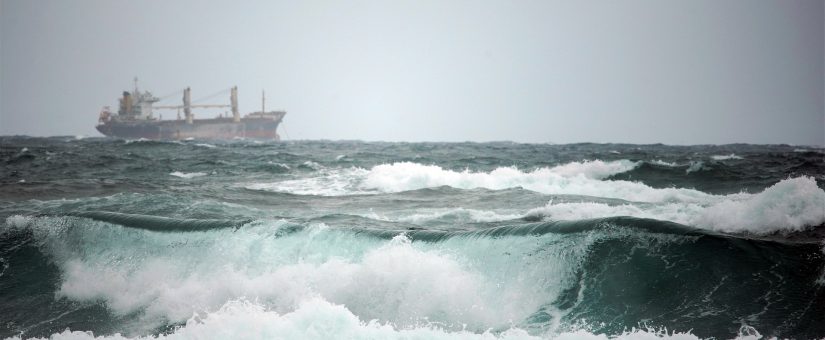
Force majeure in the international commercial practice
In international commercial contracts it is common for the parties to include a force majeure clause. Although the definition of force majeure varies in different jurisdictions, it is possible to deduce a general notion of force majeure in the international practice from the examination of Art. 7.1.7 of the UNIDROIT Principles, Art. 79 of the United Nations Convention on Contracts for the International Sale of Goods and the International Chamber of Commerce Force Majeure Clause.
More specifically, force majeure can be defined as a supervening impediment not reasonably foreseeable by the parties at the time of the conclusion of the contract or of which the parties could not reasonably foresee or overcome the effects.
Normally, force majeure clauses list the events which the parties consider to be suitable for constituting force majeure, the provision of related remedies and the manner and time limits for the notification of the event by the party whose performance is prevented.
For instance, these clauses include, but are not limited to, acts of terrorism (threatened or actual), acts of war (declared, undeclared, threatened, actual or preparations for war), pandemic (particularly after the Covid-19 spread) or other natural disasters, or any other event that is beyond the parties’ reasonable control.
When an event described in the force majeure clause occurs, a party shall not be considered in breach of the contract if it fails to perform its contractual obligations during that time.
In the interpretation of an international contract, it is essential to verify whether the contract contains a force majeure clause, and which is its wording and thus its scope and extent. Also, reference must be made to the law applicable to the contract.
Force majeure under Italian law
The Italian Civil Code contains certain provisions in order to face the consequences in case of total or partial non-performance of a contractual obligation by a party upon the occurrence of acts, events or circumstances beyond its control.
Pursuant to art. 1218 (Liability of the obliged party) “an obliged party who does not exactly perform the obligation due is liable for damages, unless it proves that the non-performance or delay was due to impossibility of performance arising from a cause not imputable to it”. Moreover, art. 1256 (Permanent impossibility and temporary impossibility) provides that “an obligation is extinguished when its performance becomes impossible for a cause not imputable to the obliged party”.
It is then for the debtor to prove that the non-performance or the delay in performing was due to a cause not imputable to it. Where the impossibility is temporary, the exemption of the debtor from liability lasts for the entire duration of the impossibility.
Art. 1463 (Total impossibility) states that “in contracts with reciprocal obligations, the party released due to supervening impossibility of the performance owed cannot demand counter performance by the other party and must return what it has already received, in accordance with the rules concerning a claim for return of undue payment”.
Thus, in this case, supervening impossibility of the performance by one party leads to the release of the other party, who will also be entitled to receive back what it has already paid or given to the other party before the latter’s obligation became impossible.
Art. 1464 (Partial impossibility) provides that “the other party has a right to a corresponding reduction of the performance due by him, and it can also withdraw from the contract if he lacks an appreciable interest in partial performance”.
Accordingly, on one hand, the beneficiary of the performance has the right to reduce its own counter performance, when possible, or withdraw from the contract if it has no interest in obtaining the partial performance.
On the other hand, the party whose performance has become partially impossible will remain obliged to perform those obligations that are still possible.
It follows that, if a commercial contract is governed by Italian law, an express force majeure clause shall not be necessarily included, as the law itself provides remedies in case of extraordinary, unforeseeable and unavailable circumstances which are beyond the control of the parties. However, parties may decide to include a force majeure clause in order to better define the events which render the performances impossible, the remedies and the right procedure to notify the counterparty with such event.
Force majeure under English law
English contract law, subject to limited exceptions, gives contracting parties the flexibility and freedom to decide all the terms that will govern their contractual relationship, and these terms will not be modified by legal principles existing outside of the contract itself.
The English legal system does not envisage a general statutory definition of force majeure which exempt the parties from their liability for non-performance or late performance of contractual obligations in case of acts, events or circumstances beyond their control.
Therefore, under English law, in the absence of an express force majeure clause, should an event beyond the control of the parties occur, and should a party fail for perform its contractual obligation as a result of such event, the non-performance will be treated as a breach of contract.
It worth to mention that common law systems apply, in certain circumstances the doctrine of frustration, which can be summarized as follows: should a subsequent and unforeseeable event beyond the control of the parties occur and should the obligation become physically or commercially impossible or radically different from those intended at the moment of the formation of the contract, the latter may be discharged or “frustrated”.
However, it is not sufficient that it is simply difficult or uneconomic to perform the contract, or that a degree of hardship or inconvenience is involved. A very high threshold must be reached to show that the contract has been truly “frustrated” and to let the courts apply this principle in case of supervening events.

- Posted by Gabriele Zabbatino
- On 21 June 2021


